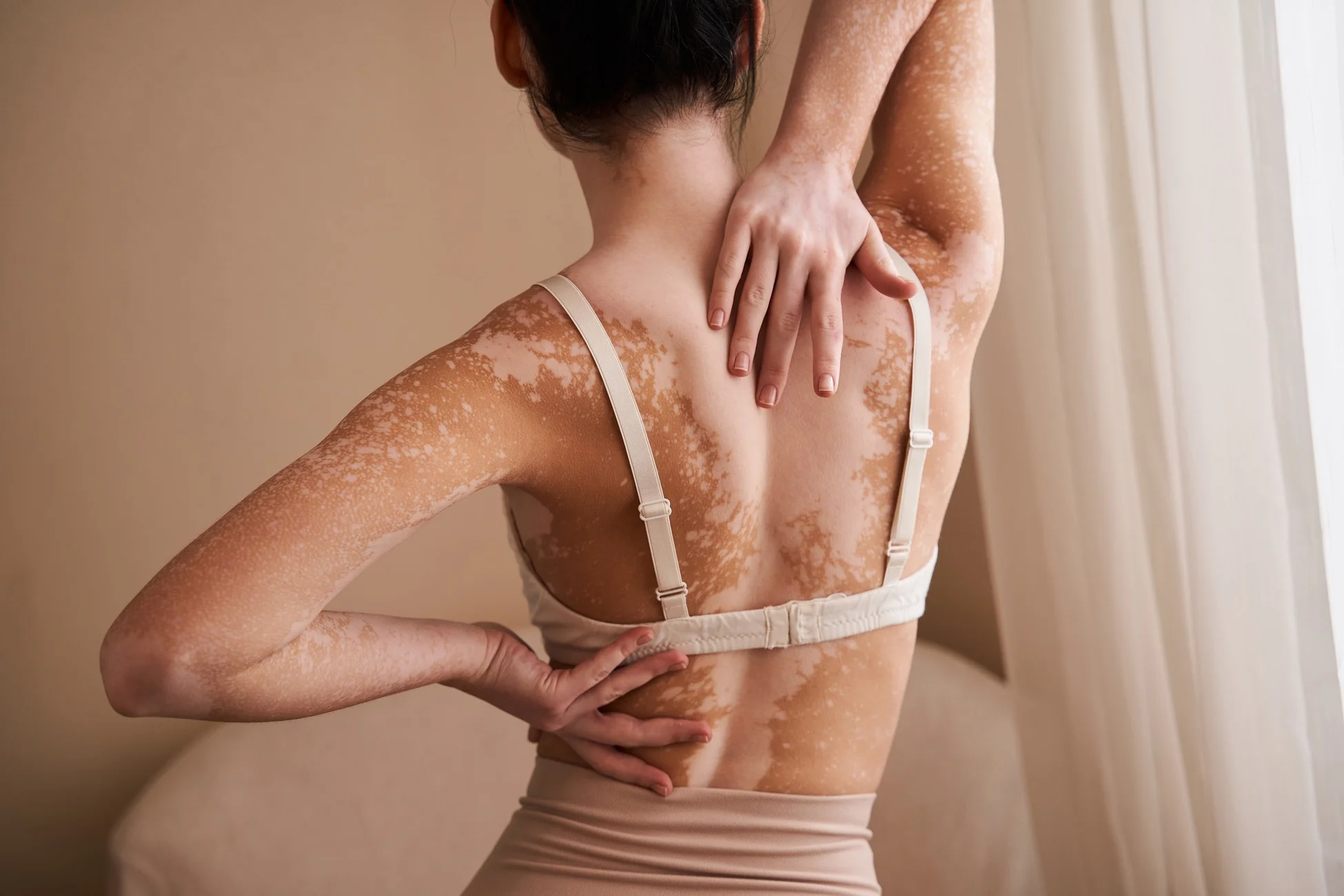Vitiligo

Vitiligo Treatment
Vitiligo is a condition where pigment is lost from the skin, resulting in white patches. This condition occurs when melanocytes, the cells responsible for producing skin color, are damaged or destroyed. While the exact cause of vitiligo is unclear, it seems to be linked to autoimmune disorders, genetic factors, or skin trauma. Vitiligo can affect any area of the body and typically presents as irregular, depigmented patches. Although there is no cure for vitiligo, there are a variety of treatments available that can assist in the improvement of the appearance of the skin and help manage the condition. These treatments include topical corticosteroids, phototherapy, and depigmentation therapy, which aim to restore some color to the affected areas or reduce the contrast between the depigmented and normal skin.
Vitiligo can affect individuals of all ages and skin types, often having a significant impact on a person’s appearance and self-esteem. When seeking treatment for Vitiligo in Northbrook, IL, you can expect a comprehensive evaluation by a dermatologist who will develop a personalized treatment plan tailored to you. It is possible for some patients to see significant improvements after only a few months, depending on the severity and the treatment method. If you are concerned about vitiligo and want to explore the latest and most effective treatment options, consider booking an appointment at Derm Collective North Shore in Northbrook, IL, to receive expert care and guidance.
Benefits of Treating Vitiligo
- Improves skin appearance
- Boosts self-confidence and emotional well-being
- Reduces the contrast between affected and unaffected skin
- Slows the progression of depigmentation
- Minimizes the impact of vitiligo on daily life
- Enhances overall skin health
- Provides personalized treatment plans
- Offers access to advanced therapies
- Supports long-term management of the condition
- Provides professional care and monitoring
Faqs About Vitiligo
Is vitiligo contagious?
No, vitiligo is not contagious. It is a skin condition related to the loss of pigment and is not caused by any infectious agent.
Is it possible for vitiligo to spread to other parts of the body?
Yes, vitiligo can spread over time. The progression varies from person to person, with some experiencing slow spreading while others may see more rapid changes.
Are there any lifestyle changes that can help manage vitiligo?
While lifestyle changes alone cannot cure vitiligo, protecting your skin from the sun, avoiding skin injuries, and mitigating stress may help reduce the risk of triggering new patches or worsening the condition.
Can vitiligo be treated with home remedies?
There are no proven scientific studies that home remedies can effectively treat vitiligo. It’s important to consult with a dermatologist to explore clinically-proven treatments that are safe and effective.
Does vitiligo affect only the skin?
Vitiligo primarily affects the skin, but it can also cause loss of pigment in other areas, such as the hair, eyes, and inside of the mouth. However, it does not affect internal organs.
Can vitiligo be prevented?
There is no known way to prevent vitiligo, especially if it is linked to genetic or autoimmune factors. Early treatment and management may help slow its progression and improve outcomes.

